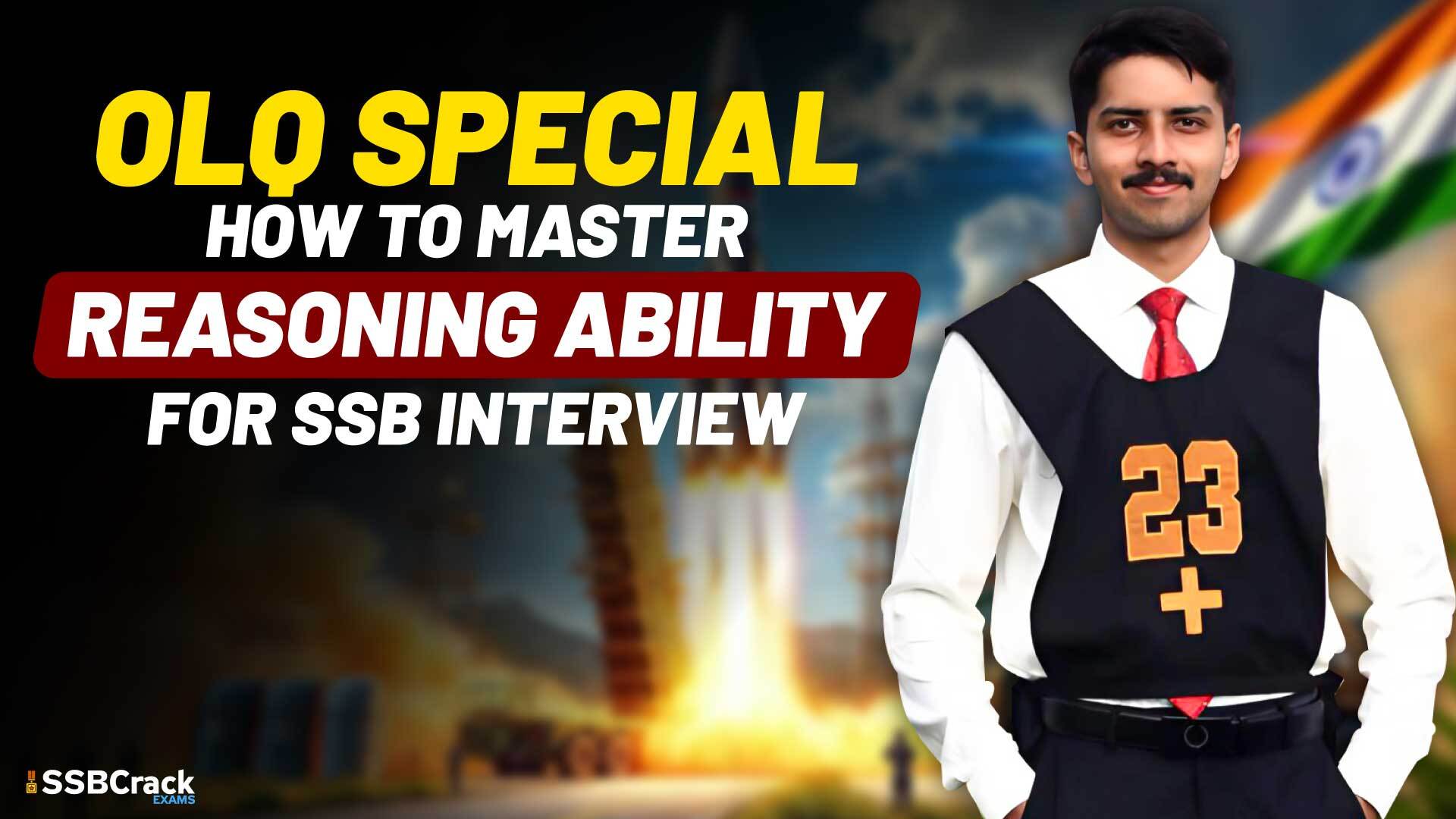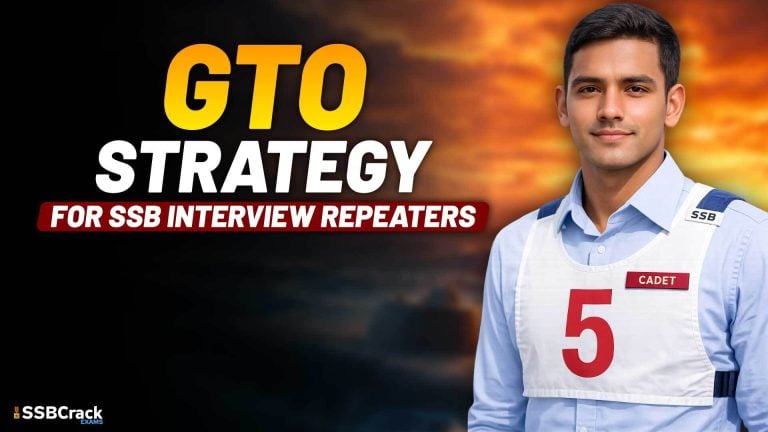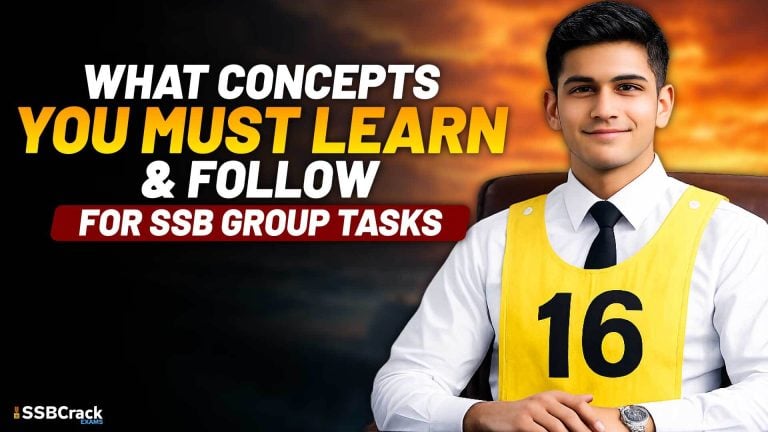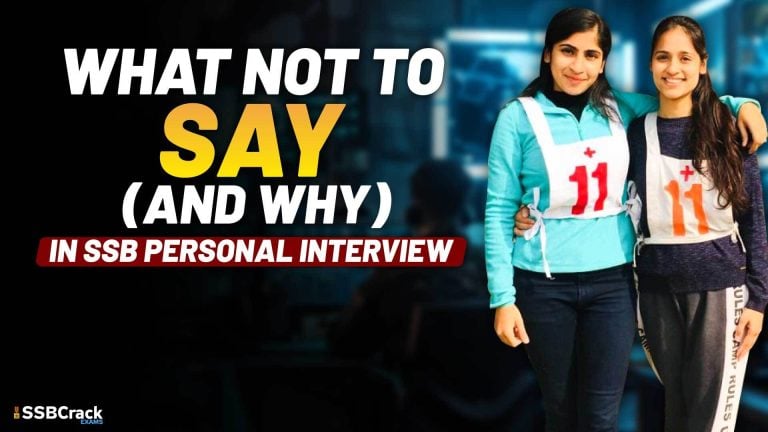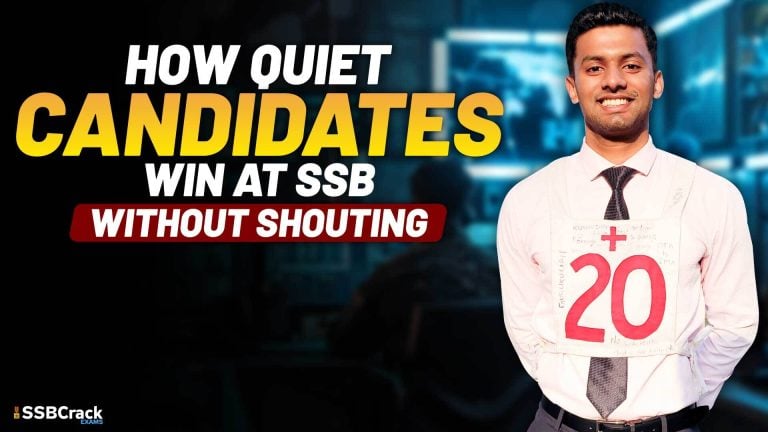Among the 15 Officer Like Qualities (OLQs) assessed in the SSB Interview, Reasoning Ability stands as a pillar of mental sharpness, clarity of thought, and logical decision-making. An officer is expected to remain composed under pressure, think through complex scenarios, and arrive at sound conclusions quickly. That’s exactly what this OLQ measures.
In this article, we’ll break down what Reasoning Ability is, how it is evaluated in SSB, how aspirants can demonstrate it, and how to develop it using everyday tasks at home, college, or work.
What is Reasoning Ability?
Reasoning Ability refers to:
“The ability to logically and systematically analyze a situation or problem, identify its cause-effect relationships, and arrive at a rational decision or conclusion.”
It is the mental faculty that enables a candidate to:
- Spot patterns and inconsistencies
- Make deductions or inferences from available data
- Apply logic in time-bound, high-pressure scenarios
It includes analytical thinking, common sense reasoning, sequential thinking, and problem-solving using facts and logic.
Where Is Reasoning Ability Assessed in SSB Interview?
1. Screening Tests (Day 1)
- OIR Test (Officer’s Intelligence Rating Test)
Includes verbal and non-verbal reasoning problems like series completion, odd one out, coding-decoding, etc. - PPDT (Picture Perception & Discussion Test)
Candidates must derive logical interpretations from a blurred image and justify their story during the discussion.
2. GTO Tasks
- Group Planning Exercise (GPE): Logical prioritization, problem-solving, and map interpretation.
- Progressive Group Task (PGT), Command Task: You’re expected to choose logical routes and use helping materials systematically.
3. Psychological Tests
- Situation Reaction Test (SRT): How logically and sensibly you react to challenging real-life situations.
- TAT (Thematic Apperception Test): Your storyline should follow a logical sequence and realistic outcomes.
4. Personal Interview
- You may face puzzles, hypothetical scenarios, or be judged on how well your answers align with your past actions and thought process.
How Is Reasoning Ability Evaluated?
Assessors check:
- Logic in your planning (in GPE, PGT)
- Consistency and coherence in your thoughts (in PI, TAT)
- Whether your solutions are practical, structured, and feasible
- Your ability to defend your ideas using facts rather than emotions or guesswork
You don’t need to always be right, but you must always be logical and clear in your reasoning.
How Can Aspirants Showcase Reasoning Ability?
✔️ During OIR & Screening:
- Practice verbal and non-verbal reasoning regularly.
- Manage time wisely: don’t overthink easy questions.
- Read all options carefully—sometimes reasoning is about elimination.
✔️ During GTO Tasks:
- Explain why you’re choosing a certain path, tool, or solution.
- Don’t follow others blindly. Speak when your logic supports an alternative.
- Stay consistent with your plan in GPE—avoid contradictions.
✔️ During Psychology Tests:
- Your SRTs and TAT responses should show a logical sequence of actions.
- Avoid impulsive, unrealistic or exaggerated actions.
✔️ During Interview:
- For any decision or belief, justify with logic or an example.
- Show that your thought process has steps, not just conclusions.
How to Develop Reasoning Ability in Everyday Life
Let’s explore how you can build this OLQ across different environments:
At Home
- Play Brain Games & Logic Puzzles
- Sudoku, Rubik’s Cube, Riddles, Chess, Crosswords
- 🔹 Improves sequential and critical thinking
- Plan Family Activities with Constraints
- e.g., Budget a family trip, redesign a room under ₹5,000
- 🔹 Logical planning under limitations
- Watch Detective/Strategy Shows
- Analyze clues and guess outcomes before the reveal.
- 🔹 Deductive reasoning skills
At School/College
- Join Debate or Quiz Clubs
- Build arguments with evidence, counter objections.
- 🔹 Analytical and structured thought
- Solve Case Study Assignments
- Focus on identifying cause-effect relationships and justifying conclusions.
- 🔹 Applied reasoning
- Participate in Simulations/Model UN
- Make policy decisions, defend them logically.
- 🔹 Decision-based reasoning
At Workplace/Internship
- Volunteer for Problem-Solving Roles
- Handle logistics, customer complaints, or internal challenges.
- 🔹 Data-based decision making
- Prepare Reports/Presentations
- Present facts logically, draw meaningful conclusions.
- 🔹 Structure and clarity in thought
- Participate in Workplace Debates or Brainstorming
- Offer structured input; back it with facts or logic.
- 🔹 Applied reasoning under discussion pressure
Final Thoughts
Reasoning Ability is what sets a capable doer apart from just a blind follower. In the SSB Interview, it’s not just about what decision you take—it’s about why you took it, how you evaluated options, and what logic you followed. The more you practice applying logic to daily life, the more naturally this OLQ will shine through in your GTO tasks, psychology tests, and interviews.
